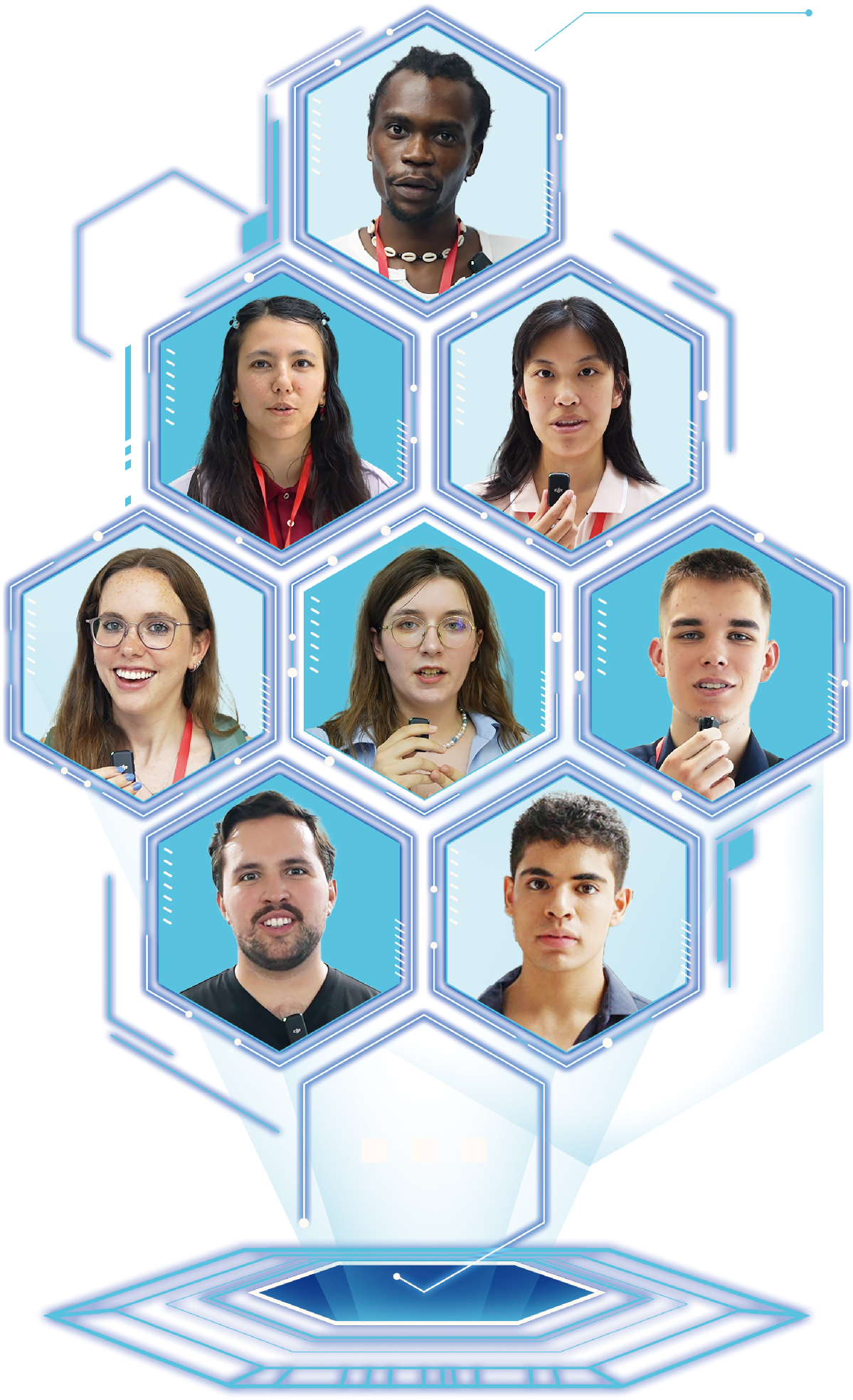From historic sites to high-tech hubs


Young people from around the world explore China's rich history and cutting-edge technology through a two-week summer program.
China boasts not only a magnificent ancient civilization but also a vibrant modern society and cutting-edge technology. From July 7 to 21, more than 80 Gen Zers from around 30 countries and regions gathered in Beijing for an exploration journey.
The summer program, titled "Discover China", was organized by Beijing Foreign Studies University (BFSU) for international students.
Through a combination of lectures, seminars, and field visits, the program aimed to help young people from around the world understand and experience China.
For example, professors from BFSU and renowned scholars delivered lectures and seminars on a wide range of topics, including Chinese technology, economy, culture, society, education, traditional medicine, diplomacy, global governance, and intercultural communication.
Additionally, various field activities were arranged, including visits to the Great Wall and the Forbidden City, as well as tours of high-tech companies such as iFlytek and Li Auto.
David Hernandez, 20, from Mexico, bought a painted Chinese folding fan depicting the beautiful landscapes near the Forbidden City. He carried it with him throughout his trip, enjoying the cool breeze it provided on hot summer days and the touch of Chinese culture it represented.
Apart from the traditional craftsmanship, Hernandez was also captivated by Beijing's urban style. "Everything is so clean. The buildings are enormous here," he marveled. "The people are warm and helpful, even though they don't understand what you're saying."
During his visit to Li Auto, Hernandez was impressed by the innovation of Chinese new energy vehicles, noting that they could become "a really big thing if they were exporting to other countries".
Natalia Pawela, 22, from Poland, and Turtuvshin Ochirpurev, 24, from Mongolia, were both particularly interested in the massage feature of the cars. They even sat in the driver's seat to experience it firsthand.
The two also toured the workshop to see how this type of car is manufactured — from sheet metal fabrication to component assembly, and the use of smart robots for sorting and transporting parts. They were amazed by the advanced level of Chinese manufacturing.
"China is more convenient than I had imagined," said Ochirpurev. "It makes me excited to learn more about China and what China can offer to the world."
Shuhan Sun, 19, from the US, has visited China many times as she has family here, but she "always learns new things about China" with each visit.
For example, she particularly enjoyed encountering service robots in hotels during her recent visits to Chengdu in Southwest China's Sichuan province, and Xi'an in Northwest China's Shaanxi province. The robots would talk to customers, provide water, and serve them in the elevator.
"It's really interesting how the technology has improved throughout the years, which has helped overcome some barriers that might have existed before," Sun said after visiting iFlytek, where the company demonstrated its artificial intelligence (AI) large language model's capabilities in text generation, logical reasoning, mathematics, and coding.
IFlytek is in Zhongguancun Software Park in Beijing, which is home to over 700 high-tech companies and a premier hub for China's next-generation information technology industry, especially for big data, cloud computing, and AI.
"Some people say AI can take over jobs, but I believe AI can also be the future as people can learn from it," Sun said.
Rocleche Grace Dibayilamani, 22, from the Republic of the Congo, believes that AI is an excellent tool for language learners. Despite arriving here just nine months ago, he has become fluent in Chinese with the help of AI apps on his phone and now teaches the language to other international students.
"AI is like a gathering of different kinds of knowledge. You can find exactly the information you want," Dibayilamani said. "Before, we didn't really understand what China was all about, but through this trip, we have gained a true understanding of Chinese technology. It has been a transformative experience."
Sabina Tairova, 23, from Uzbekistan, also uses AI to learn Chinese and translate, with all kinds of Chinese translation apps installed on her phone.
Learning about Chinese AI companies on this trip has deepened her interest in the field, and she hopes to visit tech hubs like Shenzhen in South China's Guangdong province one day.
Iaroslava Klishauskaite, 25, from Russia, is also a regular user of AI products, including new media apps like Xiaohongshu (a lifestyle app) and Douyin (the Chinese version of TikTok), as well as various video-making tools.
Klishauskaite finds it impossible to move away from modern technologies, as AI advancements on these platforms have greatly simplified her video-making process. She feels grateful for the excellent tools that Chinese companies offer to content creators.
Ilya Zvonov, 19, also from Russia, was captivated by the various technological products on display — translators, tablets, robots, and more — during his visit to the Zhongguancun Software Park. He immersed himself in these innovations and was thoroughly impressed.
"I couldn't imagine such a huge park with so many companies specializing in different fields," he said. "It's interesting to learn about them and see what they're doing."
Jose Alos Ruiz, 27, from Mexico, agrees that building a technology park is a "good idea" because "all the technological companies can be in the same place and grow together".
"In the past, we only looked at countries like the UK and the US, but now China is also an important country economically and politically," he said.
"We used to think of China as just a manufacturing hub, but it's nice to discover that China is also a significant player in global technology development."
guiqian@i21st.cn




































